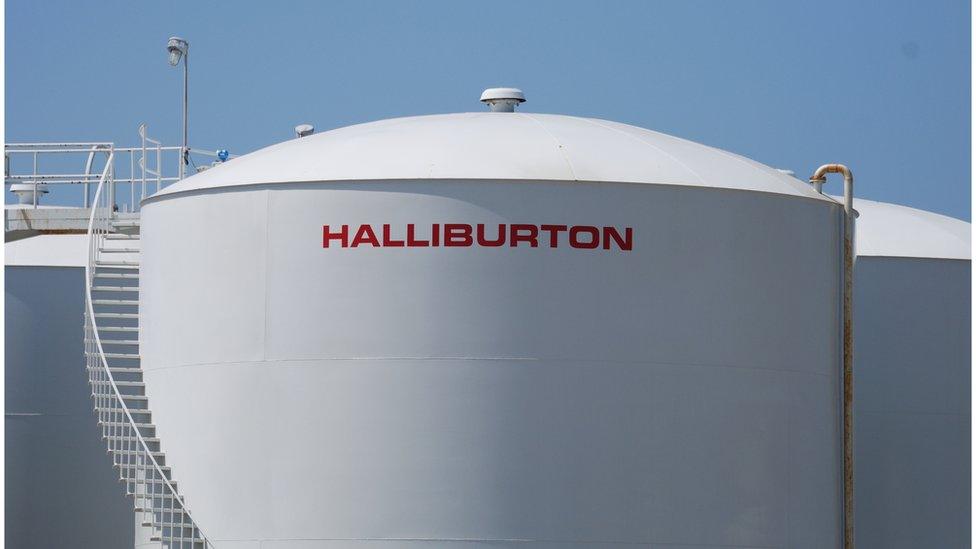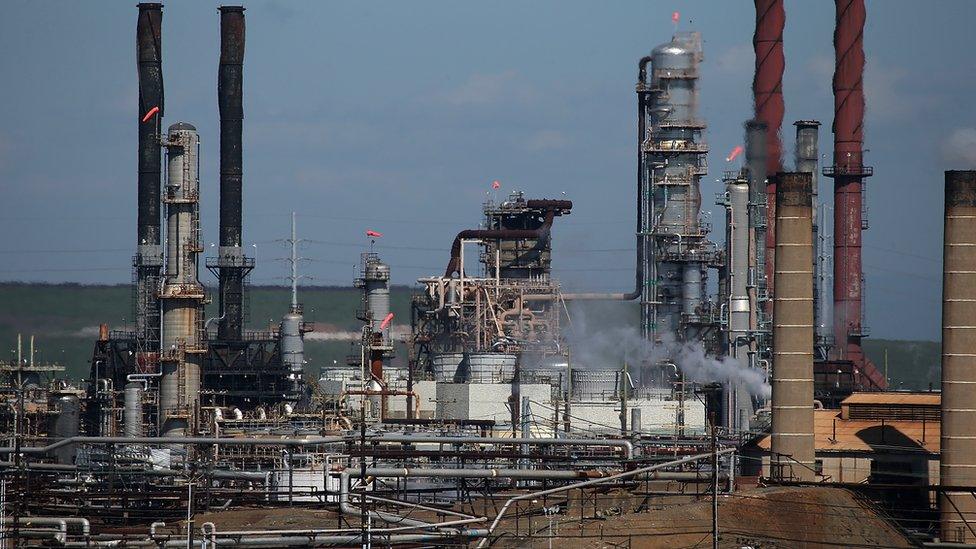US regulator sues to block Halliburton Baker Hughes deal
- Published

The US Department of Justice has filed a lawsuit to stop oilfield services company Halliburton buying its competitor Baker Hughes.
The Justice Department, external said the deal "threatens to eliminate competition, raise prices and reduce innovation in the oilfield services industry".
Halliburton , externalsaid it would "vigorously contest the DoJ's effort to block their pending merger".
The companies are two of the three largest in the industry.
"The proposed deal between Halliburton and Baker Hughes would eliminate vital competition, skew energy markets and harm American consumers," said US Attorney General Loretta Lynch.
Halliburton responded with a statement asserting the deal was "pro-competitive" and that the Justice Department had reached the wrong conclusion about the impact of the merger.
The companies have offered to sell off certain assets to make the tie-up more palatable to regulators, but the DoJ said the proposed asset sales did not go far enough.
In 2014, the firms announced the deal, valued at $25bn (£18bn). It has been held up by concerns from US and European regulators that it is anti-competitive.
Halliburton shares were down 5.5%, while Baker Hughes shares rose 8%.
On Monday, the DoJ filed a lawsuit against ValueAct - an investor in both companies- alleging ValueAct had not fully disclosed its stake in the companies and the influence it had in their business dealings.
If the deal falls apart, Halliburton could be forced to pay a $3.5bn break-up fee.
Both companies have been struggling under the pressure of falling oil prices, which have dropped more than 70% since 2014.
- Published26 February 2016

- Published4 April 2016
